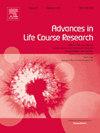Divorce in same-sex and opposite-sex couples: The roles of intermarriage, religious affiliation, and income
IF 3.4
2区 社会学
Q1 Medicine
引用次数: 0
Abstract
Studies have shown that the risk of divorce is higher for same-sex couples, especially for female couples, compared to opposite-sex couples. However, the underlying reasons are still poorly understood, despite their potential to deepen our understanding of gender roles and intersecting identities. We examine whether nationality intermarriage, religious affiliation, education, or income of the spouses plays any role in explaining the heightened divorce risk among same-sex couples. Drawing on prospective register data of same-sex couples (n = 3780) and opposite-sex couples (n = 339,401) from Finland, the results suggest that income and religious affiliation play roles—although modest—in explaining female couples’ heightened divorce risks, whereas intermarriage is more important for male couples. Intermarriage between a foreign-born husband and a native-born spouse appears to destabilize marriages, regardless of the latter spouse’s gender, indicating that being a man in a host society can strain marriages. Dissimilarity in spouses’ religious affiliations increases divorce risk in same-sex couples, particularly in male couples. Elevated income of the presumed primary breadwinner (husband or older spouse) stabilizes marriages, regardless of the gender composition of the couple, whereas increased income of the secondary breadwinner (wife or younger spouse) stabilizes same-sex marriages only. The implication is that intersections of gender norms and other identities shape divorce risks.
同性和异性夫妻的离婚:异族婚姻、宗教信仰和收入的作用
研究表明,与异性伴侣相比,同性伴侣离婚的风险更高,尤其是女性伴侣。然而,尽管它们有可能加深我们对性别角色和交叉身份的理解,但潜在的原因仍然知之甚少。我们研究了国籍、异族婚姻、宗教信仰、教育或配偶的收入是否在解释同性伴侣离婚风险增加方面发挥了任何作用。根据芬兰同性伴侣(n = 3780)和异性伴侣(n = 339,401)的预期登记数据,结果表明,收入和宗教信仰在解释女性伴侣离婚风险增加方面发挥了作用(尽管不那么重要),而异族婚姻对男性伴侣来说更重要。在外国出生的丈夫和在本国出生的配偶之间的通婚似乎会破坏婚姻的稳定,无论后者的性别如何,这表明在东道国社会中,作为一名男性可能会使婚姻变得紧张。配偶宗教信仰的不同增加了同性伴侣离婚的风险,尤其是男性伴侣。假定的主要养家者(丈夫或年长的配偶)的收入增加可以稳定婚姻,无论夫妻的性别构成如何,而次要养家者(妻子或年轻的配偶)的收入增加只能稳定同性婚姻。其含义是,性别规范和其他身份的交集塑造了离婚风险。
本文章由计算机程序翻译,如有差异,请以英文原文为准。
求助全文
约1分钟内获得全文
求助全文
来源期刊

Advances in Life Course Research
SOCIAL SCIENCES, INTERDISCIPLINARY-
CiteScore
6.10
自引率
2.90%
发文量
41
期刊介绍:
Advances in Life Course Research publishes articles dealing with various aspects of the human life course. Seeing life course research as an essentially interdisciplinary field of study, it invites and welcomes contributions from anthropology, biosocial science, demography, epidemiology and statistics, gerontology, economics, management and organisation science, policy studies, psychology, research methodology and sociology. Original empirical analyses, theoretical contributions, methodological studies and reviews accessible to a broad set of readers are welcome.
 求助内容:
求助内容: 应助结果提醒方式:
应助结果提醒方式:


